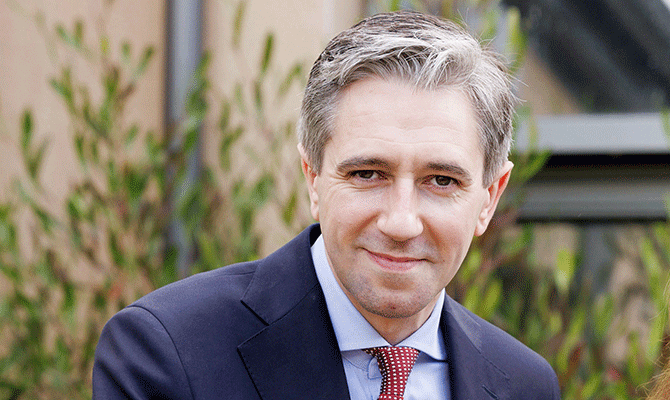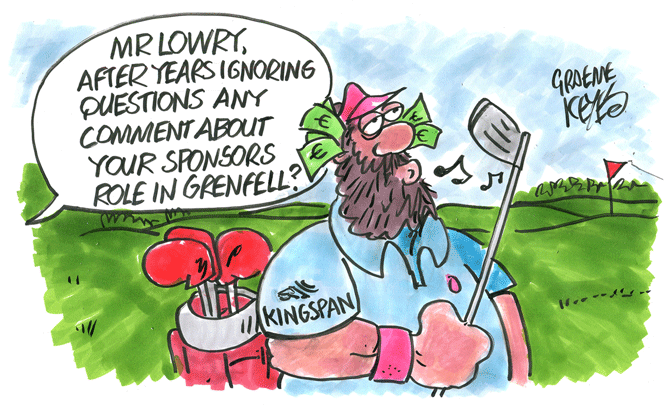
Simon Harris
A FORTNIGHT ago, August 24, Taoiseach Simon Harris said there was no scope for Ireland to act unilaterally against Israel. A week later he implied he wanted to do just that, saying he had asked for fresh advice from the Attorney General about “trade at an EU level, at an Irish level”.
Last October Micheál Martin twice heckled Michael McDowell in the Seanad crying “absolutely shameful” at the senator for describing Israel’s behaviour in the West Bank as “creeping annexation”.
Martin quickly became a strong ally of EU Commission president Ursula von der Leyen as she championed Israel in its alleged “war with Hamas” (see The Phoenix 12/1/24).
Last March Martin said Ireland was following international law when purchasing military equipment from Israel. Two weeks ago Martin’s defence department said it must comply with EU law regarding tenders. A week later he announced that the Government would not award military contracts to Israel because of the carnage in Gaza.
All of this raises serious questions about the manner in which the Government has for years hidden behind a weak legal opinion of former AG Séamus Woulfe, who in 2018 said that EU trade law forbade the enactment of senator Frances Black’s Occupied Territories Bill (banning importation of Israeli produce from the illegally occupied West Bank).
The bill has received majority support from both the Dáil and the Seanad, and Black has also secured legal opinion from serious legal heavyweights, who are experts in EU law, that demolished former AG Woulfe’s advice (see The Phoenix 8/2/19).
This week, two of Black’s legal experts again dismissed former Woulfe’s advice, pointing to the International Court of Justice (ICJ) ruling and also EU case law.
Harris, meanwhile, has asked for ‘fresh’ legal opinion in the context of the request from the Government of Ireland for the EU Commission to inquire if Israel is in breach of the human rights clauses in the EU – Israel Association Agreement.
In fact, that agreement also explicitly allows for a halt to the privileged trade it facilitates.
Most observers cite the agreement’s introduction, which refers to “particularly the observance of human rights”, and Article 2, which stipulates “respect for human rights”. But it is Article 27 that is crystal clear in its meaning, saying, as it does, that nothing in the agreement precludes a prohibition of trade “justified on grounds of public morality, public policy or public security; the protection of health and life of humans, animals or plants”.
Not even the polished Law Library word surgeons or Israeli apologists could argue their way out of that clause given the savagery of the last 10 months in Gaza.
Harris and Martin have argued that their new legal inquiries have been triggered by the ICJ’s ruling on the occupied territories and its demand that all countries abstain from trade with Israel. We have been here before.
In the run-up to the formation of the coalition Government in 2020, then foreign minister Simon Coveney made repeated and bombastic claims at the United Nations and elsewhere that Ireland was the Palestinians’ best friend – a cynical tactic that helped the Government to outmanoeuvre rivals Canada for a slot on the UN Security Council.
Within days of this strategy working as we snaffled the council seat in June 2020, Coveney returned to negotiations for the coalition Government and blocked Black’s bill – an easy mark given the manner in which the Cabinet-hungry Fianna Fáil and Greens collapsed with a whimper.
Could it be that FF and FG are becoming exercised by Irish anger at Israeli genocide and the imminence of a general election? And will their new mood survive that election?




















